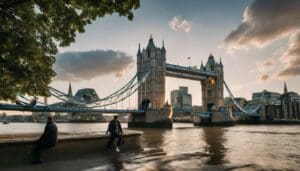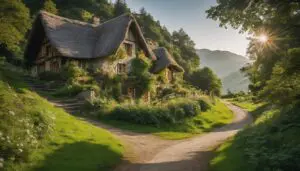Whale Hunting in the Faroe Islands: Tradition in Modern Times
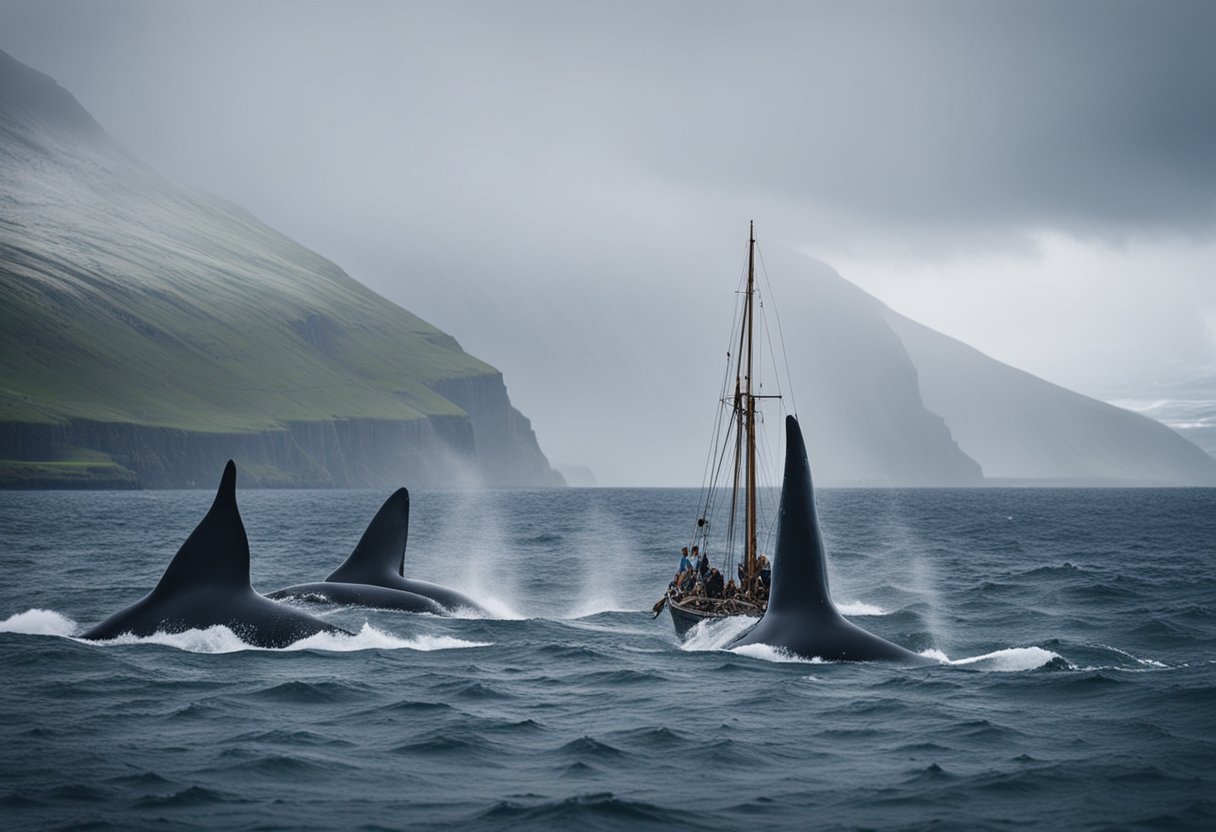
Updated On: April 22, 2024 by Raghda Elsabbagh
In the North Atlantic, a group of islands known as the Faroe Islands holds fast to a tradition that has been threaded through their cultural fabric for centuries. This is the practice of Grindadráp—a whale hunt that sees the local community collectively engage in the capturing and killing of pilot whales and other sea mammals. The hunt, deeply entrenched in the islanders’ way of life, provides not only food but also a sense of continuity and community cohesion.
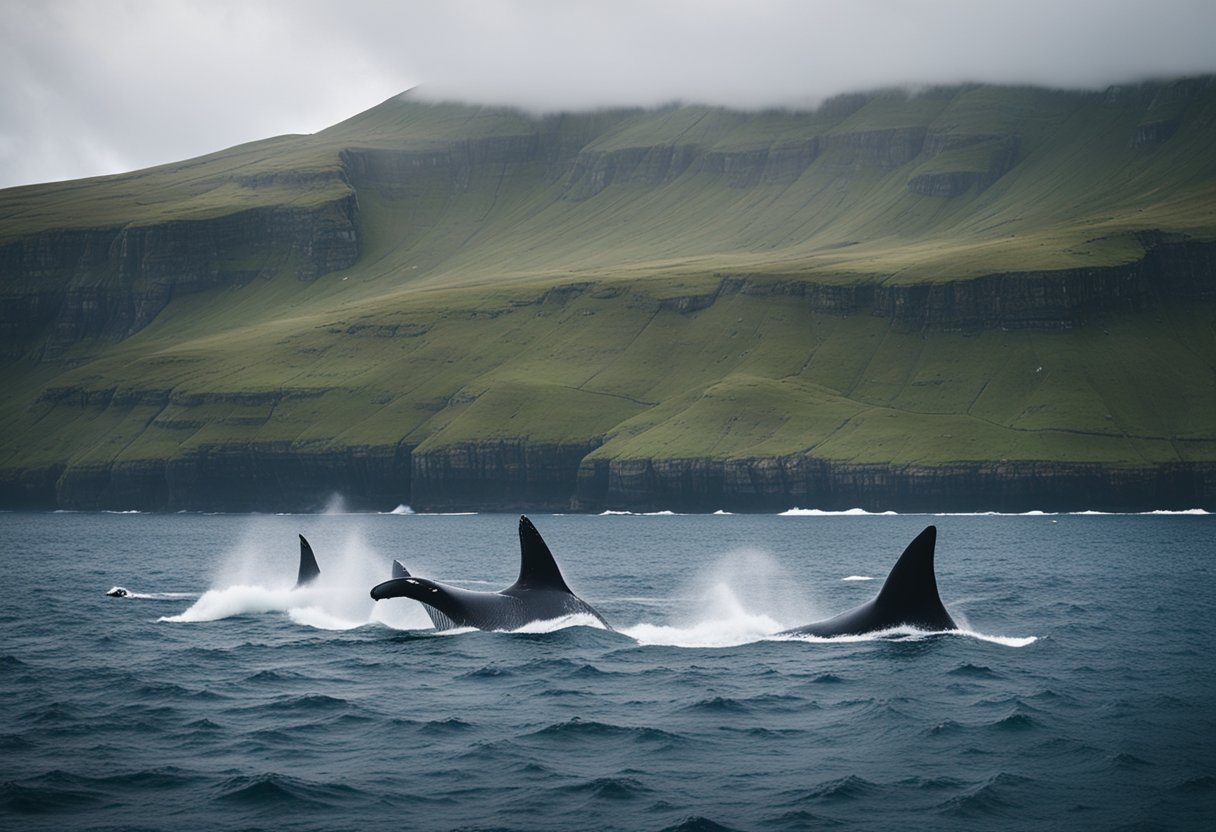
While Grindadráp represents a fundamental aspect of Faroese tradition, it does not come without controversy. Whale Hunting in the Faroe Islands has increasingly come under scrutiny as global concerns about animal welfare and environmental conservation have come to the fore. To many outside observers, the sight of the shores of the Faroe Islands streaked with the blood of these marine creatures is jarring, raising ethical questions that clash with respect for cultural practices. Yet, as the world changes, the Faroe Islanders navigate the complex waters between long-standing traditions and the swell of modern sensitivities.
Table of Contents
Historical Context of Whale Hunting in the Faroe Islands
Whale hunting has been an integral part of the Faroe Islands’ heritage, a practice rooted deeply in the archipelago’s Viking past and continuing into the present. It is not only a testament to the survival skills of the islanders but also a reflection of their cultural identity.
Origins of Grindadráp
Grindadráp, the Faroese term for the communal pilot whale drive, has ancient origins dating back over a millennium. The first settlers, believed to be Norsemen around 800 CE, established this practice as a means to harness the abundance of pilot whales in the North Atlantic as a food source. Grindadráp has since become a cornerstone of Faroese culture, imbued with historical significance and communal value.
Evolution of Whale Hunting
Over the centuries, the methods and tools used in whale hunting by the Faroese have undergone only minimal changes. The practice is seen as a rite of passage and a community event, bringing together men and women across generations. Despite the onset of modernity, whaling remains a legally regulated activity that upholds the traditional techniques passed down through the ages, underscoring the history and resilience of the Faroese people against the challenges of their environment.
Socio-Cultural Significance
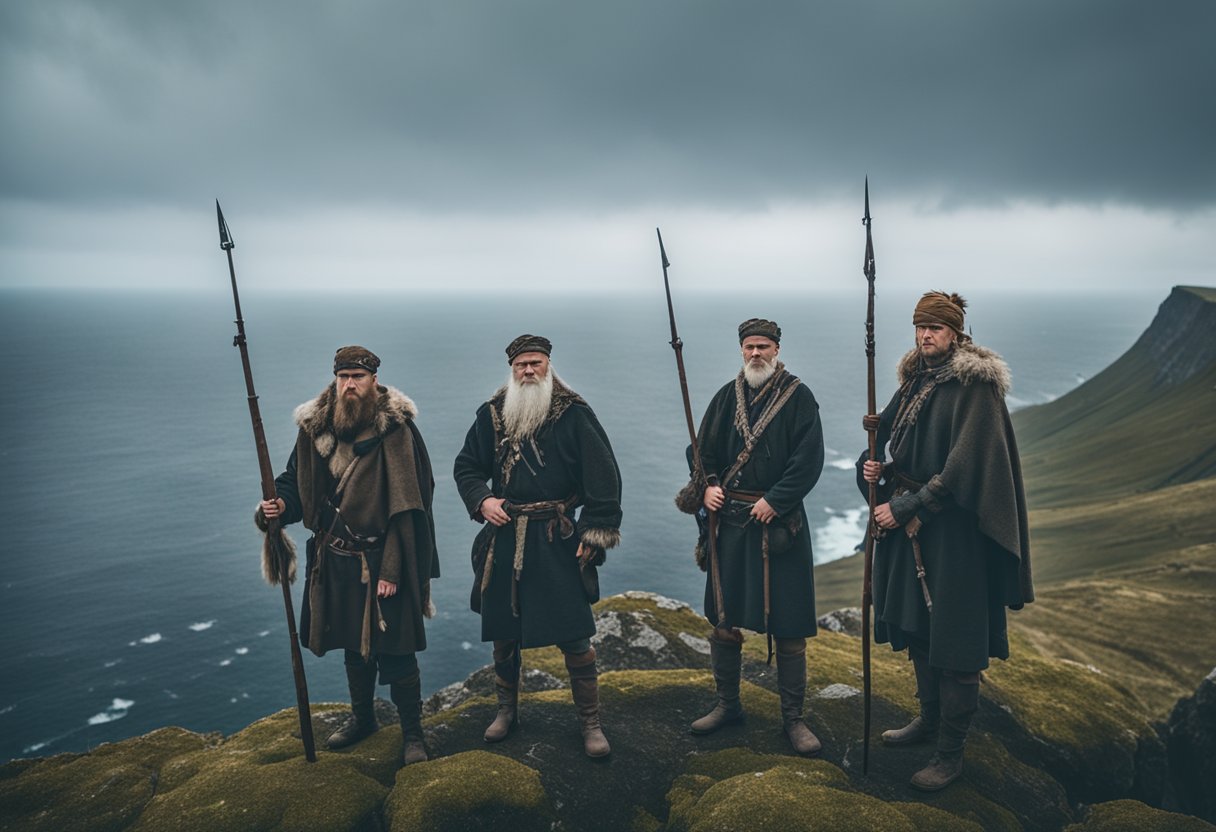
The whale hunting traditions of the Faroe Islands carry profound socio-cultural significance, intricately woven into the fabric of Faroese culture. These practices are a testament to a way of life that defines community identity and binds the present to the past.
Cultural Identity
The whale hunt, known as the grind, is emblematic of Faroese cultural identity. Rooted in a history that spans over a millennium, it symbolises the resilience and self-sufficiency of the Faroese people. Whale meat and blubber, traditionally viewed as staples, are nowadays considered cultural delicacies symbolising a unique heritage. This tradition represents a lineage unbroken since the days of the first Norse settlements.
Community and Rituals
Collective participation defines this tradition, fostering a strong sense of community. The grind is a communal activity involving all genders and generations, creating a convivial atmosphere despite the nature of the act. The distribution of whale meat is a ritual that emphasises unity and egalitarianism. Social structures are reinforced through these rituals, where the community gathers, works, and partakes in the bounty together, embodying Faroese identity and solidarity.
Whaling Practices
In the Faroe Islands, whaling is a practice steeped in tradition, combining ancient methods with contemporary understanding. It balances the need for cultural preservation with modern-day sustainability and safety measures.
Hunting Techniques
Our boats are central to the hunting process, as we organise and set out to sea when conditions are favourable. The Faroese method involves encircling pilot whales and guiding them toward the shore using a coordinated effort between boats. Once near the coast, they are secured and prepared for butchering. This practice does not adhere to a fixed schedule, but typically, the hunts are more likely to occur from June to October, aligning with the migration patterns of the whales. Whaling in these waters is conducted with regard to environmental conditions, ensuring the safety of both the participants and the respect of the sea.
Processing of Catch
After the hunt, the skill of butchering is displayed on the shores. The whales are processed promptly, ensuring that the meat is fresh and distributed among the community. The tradition of whaling in the Faroe Islands is not only a means of acquiring food but is also a unique social event that binds the community, where the catch is shared, respecting the longstanding tradition of communal sustenance. Each part of the whale is used, reflecting our deep-seated respect for the ocean’s resources and the necessity of utilising the bounty the sea provides.
Environmental Impact
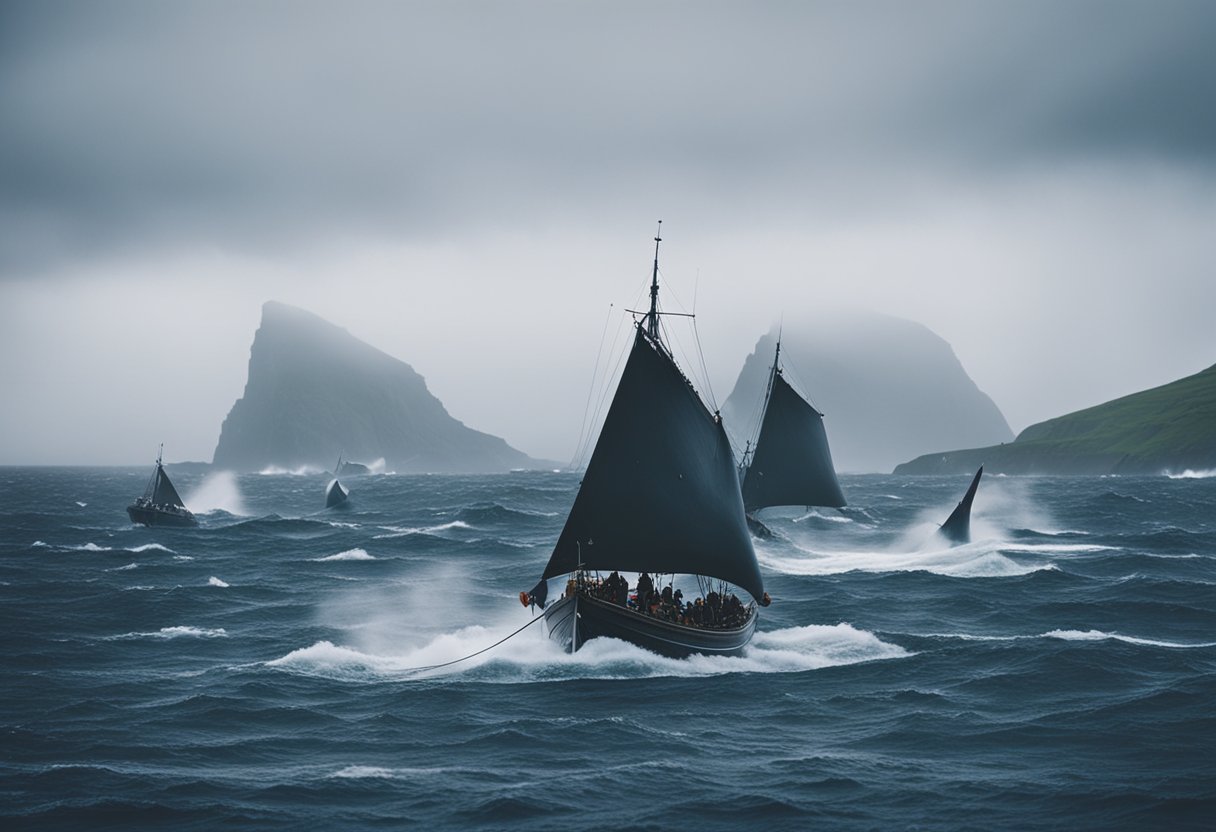
In the Faroe Islands, where the whale hunting tradition persists, we must consider the effects these practices have on the environment. It’s crucial to understand their impact on marine ecosystems and the conservation efforts that are being taken to mitigate any potential harm.
Marine Ecosystems
Pilot whale hunts, known locally as grindadráp, have raised concerns over the sustainability of such practices and their effect on marine populations. While the Faroese people argue that their activities are sustainable, there is an ongoing debate amongst environmentalists about the long-term effects on marine biodiversity. Understanding the delicate balance within these ecosystems is essential, especially as it involves top predators like pilot whales, which play a significant role in the marine food web.
Conservation Efforts
Conservation groups, including the Marine Mammal Commission, are active in promoting the preservation of marine species. Their aim is to ensure that traditions align with modern conservation principles. Local regulations now seek to strike a balance, implementing quotas and guidelines that should ideally limit hunting to a sustainable level. However, the challenge lies in reconciling these conservation efforts with maintaining the cultural heritage of the Faroe Islands. It’s our job to keep monitoring and supporting approaches that combine respect for traditional practices with the imperative of protecting our shared environment for future generations.
Ethical Considerations

In this section, we’re examining the contentious practice of whale hunting in the Faroe Islands through the lens of ethical considerations.
Humane Slaughter Debate
The act of whale hunting in the Faroe Islands raises questions about the humaneness of the grindadráp, a traditional method of hunting pilot whales. From a veterinary science perspective, concerns are centred on whether the animals are subjected to pain and distress during the slaughter process. The Faroese perspective views grindadráp as a vital cultural trace, yet criticism arises over the techniques employed, which can lead to fully conscious animals experiencing their slaughter.
Opposition by Activists
Activist groups, notably Sea Shepherd, vehemently oppose the Faroese whale hunting traditions on ethical grounds. They argue that the practice causes unnecessary suffering to highly social and intelligent marine mammals. These activists campaign for a cessation of the hunts, citing moral imperatives and advocating for the welfare of the pilot whales. Their activism brings international scrutiny and debate to the Faroese shores, conflicting with residents’ cultural heritage.
International Perception
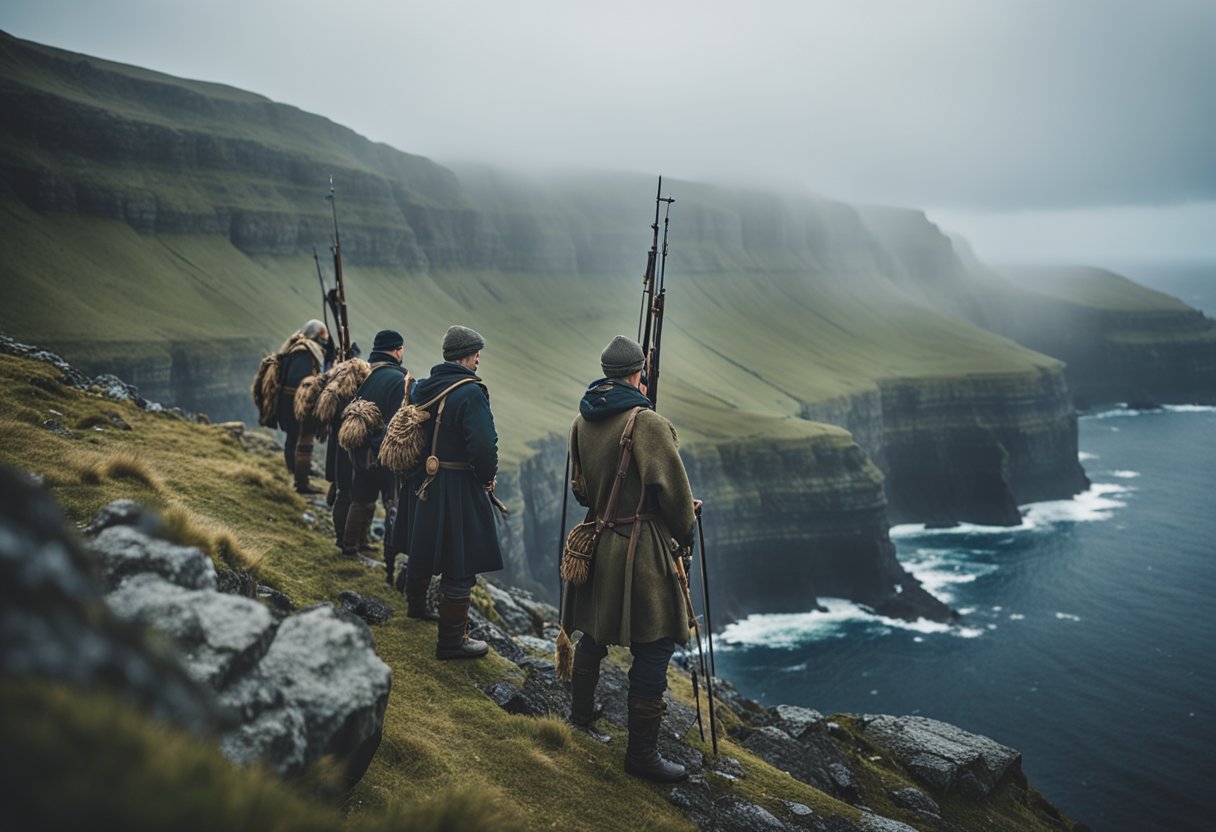
Whale hunting in the Faroe Islands has attracted significant global attention, generating a range of opinions from various international entities. Both traditional and social media have played pivotal roles in shaping the discourse, often influenced by the views of activists and environmental groups.
Media Portrayal
In both documentary filmmaking and news reporting, the media has portrayed Faroese whale hunting as a complex issue, balancing tradition with contemporary environmental concerns. Documentaries tend to scrutinise the practice, presenting detailed observations that spark discussions on the topic. Contrastingly, social media platforms have become battlegrounds where starkly opposing viewpoints clash, reflecting a divided perception that ranges from respect for cultural traditions to passionate calls for animal rights.
Global Reactions
Activists and environmental groups often lead the critical voice against whale hunting. These entities organise campaigns and leverage social media to spread awareness and advocate for change. Reactions from the international community encompass various measures, such as petitions, boycotts, and protests. These are aimed at pressure but also at sparking a global dialogue on sustainable practices and ethical pursuits. However, it is vital for us to understand that such reactions can have multifaceted impacts on the Faroese community, from their economy to their cultural identity.
Legal Framework and Regulation
In the Faroe Islands, whaling activities are underpinned by a set of specific regulations and international covenants. Our focus will centralise on the local governmental policies and the relevant international guidelines that govern whale hunting practices.
Governmental Policies
Whale hunting in the Faroe Islands is overseen by the local government, embodying a policy framework aimed at preserving this cultural practice while promoting regulation and sustainability. The key entity here is the Faroe Islands Government, which asserts authority over domestic affairs, including whaling regulations. Whale hunting is not banned in the Faroe Islands; rather, it is regulated through local laws ensuring that the activity is conducted within defined community-led parameters. Although under the sovereignty of the Kingdom of Denmark, the Faroe Islands maintain autonomy over their domestic legislation concerning whaling, manifesting their right to self-governance.
International Guidelines
On the international stage, the International Union for Conservation of Nature (IUCN) plays a significant role in classifying species and their conservation status, though it does not directly impose regulations on whaling practices. In alignment with the IUCN’s guidance, the Faroese contend that their whaling methods meet conservation standards, arguing their practices do not threaten the long-finned pilot whale population. Nonetheless, whaling activities are subject to scrutiny under international conservation protocols, necessitating that the Faroe Islands navigate complex intersections of cultural traditions and conservation concerns.
Our oversight of this delicate balance demonstrates our ongoing commitment to shedding light on practices that evoke both cultural significance and questions of conservation ethics.
Economic Perspectives
In this analysis, we’ll explore how whaling intertwines with economic elements in the Faroe Islands, particularly focusing on the local economy and the interplay between tourism and whaling practices.
Local Economy
The tradition of whale hunting has been integral to the Faroese way of life, providing a significant food source and contributing to the islands’ self-sufficiency. The meat and blubber from these hunts are distributed freely among the community, reducing reliance on imports and maintaining a degree of local food security. This practice ties back to the Faroe Islands’ cultural identity, where community sharing and sustainability are central.
Tourism and Whaling
Tourism in the Faroe Islands paints a complex picture. On one hand, the natural beauty and cultural richness of the islands attract visitors, benefiting the local economy. On the other hand, international scrutiny and debate over whaling practices can impact tourism. A balance must be struck to ensure that the economic benefits of tourism do not come at the cost of traditional practices. Some discussions have suggested capitalising on the economic potential of non-lethal whale-related activities, such as whale watching, which may provide a sustainable complement to cultural traditions while fostering tourism.
Comparative Cultural Practices
In examining the whaling traditions of the Faroe Islanders, we see a complex mosaic of cultural significance and modern debates. Our detailed comparison looks to understand these practices in the context of indigenous whaling and global meat consumption patterns.
Indigenous Whaling
Whaling in the Faroe Islands, rooted in a centuries-old tradition known as Grindadráp, continues to be a crucial subsistence and cultural element for the local population. Similarly, the Inuit people, who inhabit the Arctic regions of Greenland, Canada, and Alaska, have practised subsistence whaling for generations. This form of whaling is integral to their survival and cultural identity, as it provides essential food and materials and is deeply embedded in their social structures and spiritual beliefs. Both these indigenous communities approach whaling through traditions passed down over the years, highlighting a respectful and practical relationship with their environment.
Global Meat Consumption
Contrasting these traditional practices, global meat consumption, primarily beef and pork, involves large-scale industrial meat production. This form of production is characterised by the high-volume and high-speed processing of animals, often leading to concerns regarding animal welfare, environmental impact, and sustainability. While the Faroe Islanders and Inuit people hunt out of necessity and maintain deep respect for the animals, the industrial production systems are driven by market demand and efficiency, detaching the consumption from the act of hunting or raising the animals.
Our exploration brings to light how culturally ingrained and necessity-driven whaling practices differ significantly from modern industrial meat consumption. As we look to understand these differing perspectives, it is imperative we do so through an objective lens, appreciating the complexities and nuances of each practice.
Future Prospects

As we examine the intricacies of whale hunting in the Faroe Islands, we contemplate over its future, the changing attitudes of the people, and how tradition may adapt to the pressing demands of sustainability.
Changing Attitudes
The attitudes towards whale hunting in the Faroe Islands are gradually shifting as global awareness and ethical considerations gain prominence. The younger generations in particular, are more exposed to international values, which include animal rights and environmental conservation. This exposure is compelling a dialogue within the Faroe Islands, potentially leading to changes in the way traditional practices are perceived and executed.
Sustainability and Tradition
Balancing the sustainability of marine life with centuries-old traditions poses a challenging dilemma. While the Faroese Government maintains that their practices are sustainable, environmentalists warn of the consequences that current hunting methods may have in the face of global warming and changing sea ecosystems. The future of this practice may involve reevaluating how tradition can coexist with ecological responsibility to ensure that marine populations are not compromised for future generations.
Frequently Asked Questions
In this section, we address some common inquiries about the whale hunts that take place in the Faroe Islands, offering insights into the number of whales culled, methods used, cultural significance, influence of modernity, targeted species, and sustainability regulations.
How many whales are culled during the Faroe Islands’ traditional hunts each year?
Each year, the whale hunts of the Faroe Islands result in the culling of hundreds of pilot whales and other dolphin species. The exact numbers vary annually.
What methods are employed in the whale hunts of the Faroe Islands?
The methods used in Faroese whale hunts involve boats driving pilot whales into shallow waters, where they are then killed using knives. This process is known as ‘grindadráp’.
What cultural significance does whale hunting hold for Faroese communities?
For the communities of the Faroe Islands, whale hunting is a deep-rooted tradition with historical significance that dates back centuries, integral to their cultural identity and communal practices.
How have modern practices influenced the traditional Faroese whale hunts?
While the tradition has ancient origins, modern practices such as the use of powerboats have influenced the efficiency and methods of the Faroese whale hunts.
What species of whales are typically targeted in the Faroe Islands’ hunts?
The species most commonly targeted in the Faroese whale hunts are the long-finned pilot whales, although other dolphin species are sometimes culled as well.
How is whale hunting regulated to ensure sustainability in the Faroe Islands?
Whale hunting in the Faroe Islands is subject to both local and international regulatory measures designed to ensure the sustainability of the practice, including quotas and community-driven regulations.


